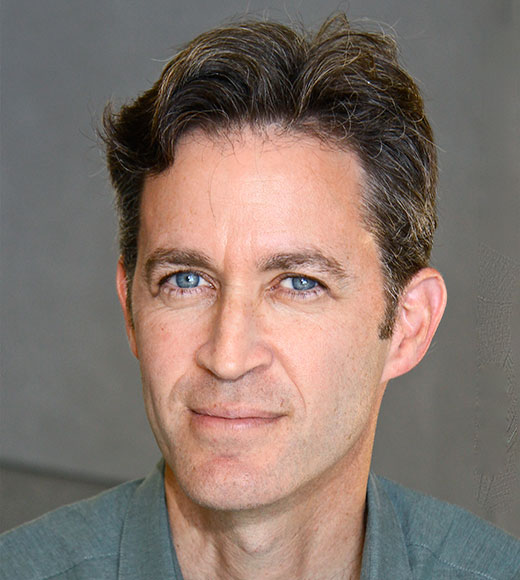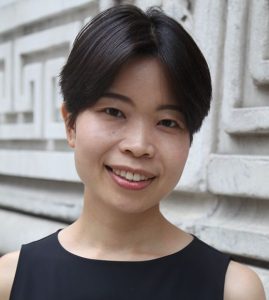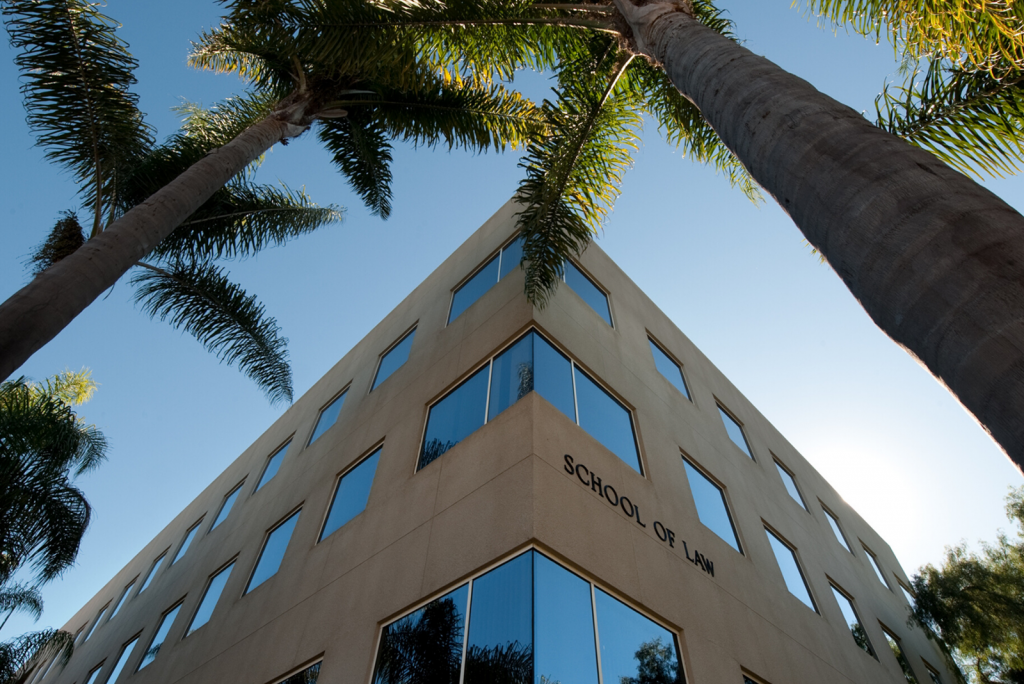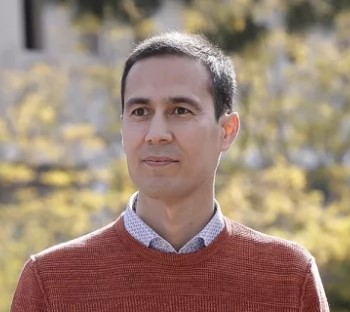International Justice Clinic
The International Justice Clinic at the University of California, Irvine School of Law seeks to advance human rights norms and protections and integrate them at national, regional, international and corporate levels—all while training the next generation of human rights lawyers. Directed by Professor David Kaye, former UN Special Rapporteur on freedom of opinion and expression, the Clinic has extensive experience addressing threats to human rights, particularly in the digital realm. The Clinic works alongside civil society organizations and other stakeholders from across the globe and emphasizes a multi-faceted approach to human rights advocacy.
Our students work on every aspect of the Clinic’s projects. They conduct international legal research, engage in on-the-ground fact finding, hold interviews in cross-cultural settings, prepare written analyses, give formal presentations to governmental bodies, build multi-stakeholder coalitions, draft litigation briefs and policy documents and much more.
The Clinic seeks to integrate marginalized and underrepresented voices and perspectives throughout our work.
Clinical Faculty

David Kaye was appointed UN Special Rapporteur on the promotion and protection of the right to freedom of opinion and expression in August 2014. His mandate was renewed in 2017 and concluded July 31, 2020.
David’s reporting to the UN General Assembly and Human Rights Council has addressed some of the most difficult issues of the digital age: the role of encryption and anonymity in advancing privacy and free expression; the protection of whistleblowers and journalistic sources, and how surveillance undermines those protections; the responsibilities of digital access providers in the face of authoritarian governments’ efforts to shut down access to websites and networks; and the global assault on expression. He reported to the UNGA in 2017 on the lack of access to information policies throughout international organizations.
David is clinical professor of law at the UCI Law. He directs the Clinic and teaches doctrinal courses on international human rights law and international humanitarian law. His research and writing focus on accountability for serious human rights abuses and the law governing use of force. He has collaborated with local and national governments, major international NGOs as well as those at the grassroots, international organizations, and academic institutions around the world.
He has also published numerous research essays and opinion pieces on international human rights law related issues in a wide range of specialised reviews and mainstream publications. Recent publications outside of the FREEDEX mandate include: Archiving Justice: Conceptualizing the Archives of the ICTY, Journal of Archival Science (2014); Stealth Multilateralism: U.S. Foreign Policy Without Treaties – or the Senate, Foreign Affairs (2013); Human Rights Prosecutors? The United Nations High Commissioner for Human Rights, International Justice, and the Example of Syria (book chapter) (2013); State Execution of the International Covenant on Civil and Political Rights, 3 U.C. Irvine Law Reviews 95 (2013).
In addition to his teaching and research, he has lectured around the world, including at the United Nations and the International Criminal Court. He has taught courses in public international law, international humanitarian law and human rights at Georgetown University, Whittier Law School, and summer courses at the Universities of Toulouse and Amsterdam. He co-founded the International Human Rights Program of the University of California, Los Angeles, School of Law, and founded its International Justice Clinic, working on projects dealing with accountability for international crimes around the world. Mr. Kaye began his legal career as a lawyer with the U.S. Department of State.
David has served on numerous local, national, and international boards over the course of career. He has been an active member of the American Society of International Law, for which he served on its Executive Council and Executive Committee, and is a member of the Council on Foreign Relations. He earned his undergraduate and law degrees from the University of California, Berkeley. His c.v. may be found here.

Hinako Sugiyama is an international human rights lawyer and a faculty member at the University of California, Irvine School of Law, where she supervises the work of the International Justice Clinic. Hinako analyzes how states and companies’ conduct impacts people’s lives and ideas, particularly those placed under power, and supports them in resisting surveillance and expressing themselves more. Her tools include multidisciplinary research, litigation, and policy advocacy, as well as coalition building. Currently, she is working on issues such as targeted surveillance of journalists and human rights defenders in Sub-Saharan Africa. Before joining UC Irvine, Hinako served as a Columbia Global Public Service Fellow at a digital rights organization Access Now, and a legal intern at the Electronic Frontier Foundation. Previously, she worked at a top international law firm in Tokyo, leading cross-border investigations and remediation of multinational companies’ misconduct, such as corruption and fraud in Global South countries such as Vietnam, and improving corporate compliance programs.
Hinako’s most recent major publications and presentations include: “Does ICE Data Surveillance Violate Human Rights Law? The Answer is Yes, and It’s Not Even Close,” Tech Policy Press (H. Sugiyama, E. Tucker, ed. 2023) and “E2EE in Japan – culture and policy,” Real World Crypto Symposium (2023).
Hinako earned her B.A. from Keio University in Tokyo, J.D. at Hitotsubashi Law School in Tokyo, and LL.M. at Columbia Law School in New York. She is a qualified lawyer in Japan and the US.
Hashmat Nadirpor is a Visiting Associate Project Scientist at UCI Law. He works on the Afghanistan Human Rights Project to monitor and advocate for action to address Afghanistan’s deteriorating human rights situation.
Prior to this Hashmat was a Legal Expert at Afghanistan Legal Research and Development Organization where he helped build the capacity of Afghanistan Independent Human Rights Commission. From 2013 to 2020, he worked as Legal Advisor with Legal Education Support Program-Afghanistan to build capacity in Law and Shari’a faculties at public universities throughout Afghanistan.
Hashmat has also worked with the International Federation of Red Cross and Red Crescent Societies where he researched and analyzed the existing legal and policy frameworks for disaster management and response in Afghanistan. The study “International Disaster Response Law in Afghanistan” was published on the IFRC’s website in 2013. He has further worked on a World Bank Project as a Legal Specialist, where he helped to draft a law and two regulations on pesticides and plant protection and quarantine for Afghanistan’s Ministry of Agriculture.
Hashmat received his LL.M from University of Washington School of Law and his B.A. from Kabul University Faculty of Law & Political Science.
Former Clinical Faculty
Sofia Jaramillo-Otoya was the Digital Rights Fellow and Lecturer/Clinical Supervisor. She served as the Legal Advisor to Professor David Kaye, the Former United Nations Special Rapporteur on the right to freedom of opinion and expression.
Prior to her position, she was the legal officer at Columbia University’s Global Freedom of Expression. Sofía lead the Latin American chapter of the project and designed, developed and launched a teaching portal that offers academic and training resources on the laws, institutions and actors that have founded a global system of freedom of expression and information. She has produced jurisprudence analyses, legal papers, articles and other publications on a range of topics concerning free expression. Sofía worked with Dr. Agnes Callamard on the editing process of the Book “Regardless of Frontiers: Global Freedom of Expression in a Troubled World” in which she also contributed with a chapter.
Sofía has devoted much of her career to international human rights mechanisms. She has worked with two Special Rapporteurs for Freedom of Expression of the Inter-American Commission on Human Rights and served as legal advisor to the United Nations Special Rapporteur on the right to freedom of opinion and expression and the UN Special Rapporteur on extrajudicial, summary or arbitrary executions. Sofía has also worked and consulted for regional organizations in Latin America such as Dejusticia, Civitas, the Foundation for Free Press (FLIP) and the Inter-American Press Association. Among others, she coauthored an advanced course for judges and legal practitioners in the Americas.
Sofía earned her law degree from Rosario University in Bogotá, Colombia, and her LLM from Columbia Law School in New York, where she was a Human Rights Fellow. She graduated from Columbia with the academic recognition of Harlan Fiske Stone Scholar and a Certificate in International and Comparative Law.
Mary Hansel was a Lecturer/Clinical Supervisor at UCI Law and served as Acting Director of the Clinic during the Spring Semester of 2021. Mary earned her J.D. at the USC Gould School of Law and her LL.M in Public International Law at the London School of Economics. She has published and presented widely on international law and human right issues.
Mary has taught both clinical and doctrinal courses on international law and human rights. As a clinician, she has supervised a diverse array of human rights projects—from litigating before regional courts and treaty bodies to drafting human rights reports on timely issues to carrying out field missions across the globe. She has also created clinical curricula that empower students to conduct human rights advocacy throughout their legal careers. Additionally, Mary has taught a range of doctrinal courses on international law, including a course on the use of human rights standards and mechanisms in addressing social justice issues in the U.S.
Prior to academia, Mary practiced litigation and international arbitration at Irell & Manella and Bird, Marella, et al. She also worked on human rights matters at non-governmental organizations, including Human Rights Watch and the International Center for Transitional Justice, and consulted on international criminal law issues for proceedings before the High Court of Uganda.
Mary is an active member of the international human rights legal community. She is Co-Editor of the Human Rights at Home Blog and a member of the national Cities for CEDAW Advisory Committee. She recently completed her term as an Executive Committee Member of the California State Bar’s International Law Section. During her term, she served as Founding Chair of the International Human Rights Committee and Managing Editor of The California International Law Journal.
Ramin Pejan is a staff attorney with the Earthjustice International Program and was an adjunct clinical professor at the University of California, Irvine School of Law.
Prior to his position at Earthjustice, Mr. Pejan worked with the United Nations Office of the High Commissioner for Human Rights and the United Nation Environment Programme on the linkages between human rights and environmental issues.
From 2010–2012, he was Legal Counsel for the Association for Water and Rural Development,a non-profit working on water resource management and environmental issues in rural South Africa.
Mr. Pejan also worked for the New York City Law Department, Environmental Law Division, from 2005–2010 as an Assistant Corporation Counsel and then Senior Counsel, where he was engaged in a wide variety of environmental litigation, advocacy, counseling and compliance work in areas of federal and state law. Highlights include being a key member of the trial team that won a $100 million judgment in City of New York v. Exxon Mobil Corporation; defending the Yankee Stadium environmental impact study; and serving as lead counsel for the City in state and federal court challenges against the City’s efforts to require hybrid taxicabs. His Exxon Mobil trial team was a finalist for Trial Lawyer of the Year awarded by Public Justice in 2010.
He received his LL.M. from McGill University in International Human Rights and Environmental Law (2005), his J.D. cum laude from American University, Washington College of Law (2002), and his B.A. from Duke University (1998).
Amos Toh currently serves as Senior researcher on artificial intelligence and human rights at Human Rights Watch. Toh was IJC’s Ford Foundation Fellow and the Legal Advisor to the United Nations Special Rapporteur on the right to freedom of opinion and expression. His research and advocacy focus on online content regulation, surveillance, net neutrality, and Internet governance.
Amos was formerly Counsel and Katz Fellow at the Brennan Center for Justice, where he worked on government surveillance reform and religious profiling issues. He is the author of Overseas Surveillance in an Interconnected World (2016) (with Faiza Patel and Elizabeth Goitein), and Foreign Law Bans: Legal Uncertainties and Practical Problems (2013) (with Faiza Patel and Matthew Duss). His writing has been featured in major newspapers and publications, including The Washington Post, The Guardian, Al-Jazeera and Salon.
Amos received his LL.M. from NYU School of Law (2012), and was awarded the George Colin Award for distinction in the Traditional LL.M. program. He received his Bachelor of Laws from the National University of Singapore School of Law (2012), ranking first in his class.

Contact Us
David Kaye
Clinic Director
Email: dkaye@law.uci.edu
Twitter: @davidakaye
Hinako Sugiyama
Digital Rights Fellow
hinakos@uci.edu
Hashmat Khalil Nadirpor
Visiting Associate Project Scientist
hnadirpor@law.uci.edu
General Clinic Email: ijclinic@protonmail.com
